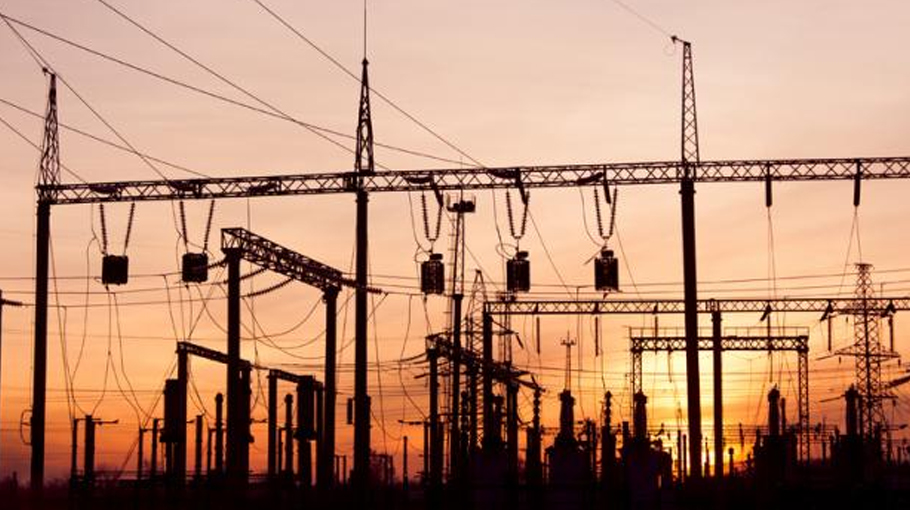Electricity for all achieved
PM to formally announce the feat today

Bangladesh has achieved yet another milestone as the entire population of the country has come under electricity coverage. Experts hailed the achievement.
The achievement will put Bangladesh ahead of India and Pakistan, among the countries in South Asia, that have brought 98 percent and 74 percent of their population under electricity network, data from the World Bank showed.
Izaj Hossain, an energy expert and a professor of the Bangladesh University of Engineering and Technology, told The Bangladesh Post that obviously, it’s a big achievement of the government, which will tremendously help to change the overall economy of the country.
“However, we need reliable and quality power to all classes of the people which should be affordable. Besides, it’s very essential to ensure the quality of equipment in the transmission and distribution lines.”
He continued, “There has been a lot of improvement in power generation in the country. Our generation capacity surpasses our demand. At this moment the government must pay attention to the transmission and distribution system to ensure uninterrupted power supply.”
According to Power Division, all cities, villages, chars, remote hilly areas have been brought under the coverage of electricity. After independence, till January 2009 around 47 percent of the country's population had access to electricity.
Then in the last 13 years, the remaining 53 percent of the people have came under electricity coverage. Through this unimaginable success in one decade, the government lived up to its election pledges to bring all the citizens of the country under electricity coverage on the occasion of 50 years of independence and ‘Mujib Barsho’.
Prime Minister Sheikh Hasina will announce this achievement formally at a programme Today. The Prime Minister will also inaugurate the country’s first ultra-supercritical coal power plant having a capacity of 1320 MW at Payra in Patuakhali district on the same day today.
In the efforts to implement the government’s 100 percent electrification coverage, the power division has supplied electricity across the country including remote areas through submarine cable and renewable energy. Along with the increase of electricity users, power outages have also decreased comparatively.
State Minister for Power, Energy and Mineral Resources Nasrul Hamid said “The country has witnessed unprecedented development in the power sector in the last 13 years. Prime Minister Sheikh Hasina has played a vital role in ensuring electricity for all in Bangladesh.”
“The country's power generation capacity has increased around five times since 2009. The demand for electricity is rising by 200 MW per day. The country now has a generating capacity of 25,514 MW, including captive, imported and renewable energy. In addition, another 33 power plants with a total power generation capacity of 13,219 MW are under construction. Plans are afoot to export electricity in the winter season,” he added.
Nasrul also said that many people in the past did not have full coverage of electricity. But in the last few years, people's lives have changed as they have better access to electricity. There is no shortage of electricity now. Rather there is a surplus. And it has been possible due to the real-time sustainable planning and initiatives undertaken by the government led by Prime Minister Sheikh Hasina.
“Several projects are now underway to improve the power distribution system. Due to these, there are some problems with the power supply in some areas. This is a temporary and technical problem. Everything will be fine in the next two years,” he added.
Power division officials said that apart from boosting economic growth, increased power coverage has improved the lives of people in remote villages and created new income-generating opportunities for the people.
Officials also said that with the development of the internet and information technology, people in rural areas are getting more economic opportunities and the spread of education is being accelerated while primary health care has reached people's doorsteps.
As a result of wider power distribution, Bangladesh has already evolved from a least developed country to a developing country.
According to a study by research institute BIDS (Bangladesh Institute of Development Studies), an increase in power generation by 10 lakh units adds about Tk 4.60 crore to 10.70 crore to the macroeconomy every year.
The country has undergone revolutionary changes in the power sector during the last 13 years. Bangladesh has now transformed from a power-starved country to a power-surplus one.
Power Division Secretary Habibur Rahman said, “Bangladesh is an exception in South Asia, ahead of neighboring countries in terms of power supply. We have been able to provide electricity to Rangabali in Patuakhali, Swandip, Hatia and Nijhum Dip in Noakhali and other remote areas. The people of the areas also did not want to believe that they would get electricity.”
When the Awami League-led government assumed office in 2009, the nation was suffering from a chronic power supply crisis. The average power demand at the time was about 6,000MW while the power generation capacity of the country was less than 4,942MW. Eight to ten hours of load-shedding in summer days was causing unbearable miseries. Now the installed capacity has increased to 25,514 MW (with captive power, imported and renewable power).
The highest power generation rose to 13,792MW (27 April 2021) from 3,268MW (January 6, 2009). The number of power plants rose to 148 from 27. The number of electricity users increased from 1 crore 8 lakh to 4 crore 21 lakh. The power distribution system losses have been significantly reduced to 8.48 percent during the incumbent government’s tenure, from 14.33 percent. Per capita power generation more than doubled to 560 kilo-watt-hour from 220 kWh during the period, making a frequent power outage a thing of the past.



